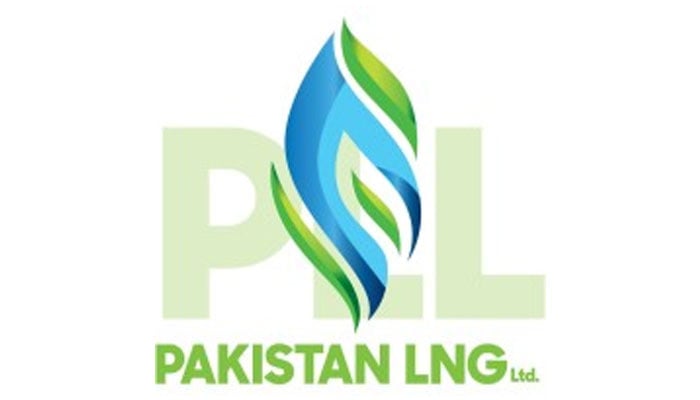Oman’s OQ Trading wins Pakistan LNG tender for January delivery
LAHORE: The state-owned Pakistan LNG Limited (PLL) has awarded a tender to OQ Trading of Oman for a spot cargo to be delivered in January 2024, aiming to secure enough supplies to meet peak winter demand.
OQ Trading was among four bidders, including Vitol Bahrain, QatarEnergy Trading and Trafigura, who submitted quotes for the tender floated last week for delivery of a 140,000 cubic meter shipment between January 8-9, 2024 at Port Qasim, Karachi.
OQ Trading offered the lowest bid of $18.46 per million British thermal units (MMBtu), followed by Vitol Bahrain at $18.58, QatarEnergy Trading at $19.43 and Trafigura at $19.64 per MMBtu, the document showed.
Although the price offered by OQ Trading was the lowest in the bidding process, it was still higher than the previous spot cargoes procured by Pakistan LNG. It is learnt that Pakistan managed to negotiate the price and would buy at below $18 per MMBtu.
The import from the spot market would help reduce an energy shortage in the winter but at a cost. Market insiders believed that the imported gas would not be feasible to divert to urea manufacturing plants as the government would require huge funds for subsidizing feedstock. Moreover, power generation from such high-priced natural gas would not be feasible especially if it is compared with the furnace oil-fueled power generation.
Hence, they were of the opinion that most of the regasified liquefied natural gas (RLNG) would be supplied to domestic consumers after involving a massive amount of subsidy to make it cheaper for end-users. In power generation, the option of exercising the use of FO is there, which is available at a comparable cost to RLNG. However, the government would be left with no option but to provide costly RLNG for urea manufacturing if it is forced to run plants for meeting the demand of fertilizer during the wheat cultivation season.
It may be noted that Pakistan started importing LNG in 2015 as a chronic shortage of natural gas hit the economy hard. With the construction of the first terminal at the port city, Pakistan signed a 15-year long-term Government-to-Government agreement with Qatargas for the supply of 3.75 million tonnes per annum (MTPA) and a 5-year medium-term LNG import term tender with Gunvor of 0.75 MTPA.
Additionally, PLL has also signed a 15-year long-term LNG supply agreement with Eni for the supply of one cargo per month (i.e., 0.75 MTPA) and a 5-year medium-term agreement with Gunvor for the supply of one cargo of LNG per month. PLL also meets the additional demand by SNGPL through spot tendering.
Purchase from the spot market was made as and when needed. The spot can be arranged from any LNG source throughout the world. It is pertinent to mention here that the RLNG market in the country works under a regulatory framework. The procurement of LNG is made by state-owned enterprises like Pakistan LNG Limited (PLL) and Pakistan State Oil (PSO). The LNG import is made for gas utilities including Sui Northern Gas Pipelines Limited (SNGPL), and Sui Southern Gas Company (SSGC).
Currently, there are two regasification terminals operating at Port Qasim, Engro Elengy Terminal (Pvt.) Limited (EETPL) and Pakistan GasPort Consortium Limited (PGPC) terminal. The RLNG is transported to the end consumers through the transmission and distribution network of SSGC and SNGPL.
-
 Daniel Radcliffe Admits To Being Self Conscious While Filming 'Harry Potter' In Late Teens
Daniel Radcliffe Admits To Being Self Conscious While Filming 'Harry Potter' In Late Teens -
 Director Beth De Araujo Alludes To Andrew's Arrest During Child Trauma Talk
Director Beth De Araujo Alludes To Andrew's Arrest During Child Trauma Talk -
 Video Of Andrew 'consoling' Eugenie Resurfaces After Release From Police Custody
Video Of Andrew 'consoling' Eugenie Resurfaces After Release From Police Custody -
 'Harry Potter' Alum Daniel Radcliffe Gushes About Unique Work Ethic Of Late Co Star Michael Gambon
'Harry Potter' Alum Daniel Radcliffe Gushes About Unique Work Ethic Of Late Co Star Michael Gambon -
 Japan: PM Takaichi Flags China ‘Coercion,’ Pledges Defence Security Overhaul
Japan: PM Takaichi Flags China ‘Coercion,’ Pledges Defence Security Overhaul -
 Angorie Rice Spills The Beans On Major Details From Season 2 Of ' The Last Thing He Told Me'
Angorie Rice Spills The Beans On Major Details From Season 2 Of ' The Last Thing He Told Me' -
 Questions Raised Over Andrew Mountbatten-Windsor's Line Of Succession
Questions Raised Over Andrew Mountbatten-Windsor's Line Of Succession -
 'Shameless' Sarah Ferguson 'pressuring' Princess Eugenie, Beatrice For Major Reason
'Shameless' Sarah Ferguson 'pressuring' Princess Eugenie, Beatrice For Major Reason -
 Teacher Arrested After Confessing To Cocaine Use During Classes
Teacher Arrested After Confessing To Cocaine Use During Classes -
 Paul McCartney Talks 'very Emotional' Footage Of Late Wife Linda In New Doc
Paul McCartney Talks 'very Emotional' Footage Of Late Wife Linda In New Doc -
 Princess Beatrice, Princess Eugenie's Response To Andrew's Arrest Revealed
Princess Beatrice, Princess Eugenie's Response To Andrew's Arrest Revealed -
 King Charles And Princess Anne Bestow Honours At Windsor Castle
King Charles And Princess Anne Bestow Honours At Windsor Castle -
 King Charles 'worried' As Buckingham Palace, Royal Family Facing 'biggest Crisis'
King Charles 'worried' As Buckingham Palace, Royal Family Facing 'biggest Crisis' -
 Milo Ventimiglia Recalls First Meeting With Arielle Kebbel On The Sets Of 'Gilmore Girls' Amid New Project
Milo Ventimiglia Recalls First Meeting With Arielle Kebbel On The Sets Of 'Gilmore Girls' Amid New Project -
 Eric Dane Infuriated After ALS Diagnosis As He Feared The Disease Would Take Him Away From His Girls
Eric Dane Infuriated After ALS Diagnosis As He Feared The Disease Would Take Him Away From His Girls -
 It's A Boy! Luke Combs, Wife Nicole Welcome Third Child
It's A Boy! Luke Combs, Wife Nicole Welcome Third Child




